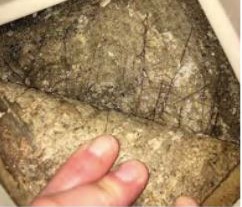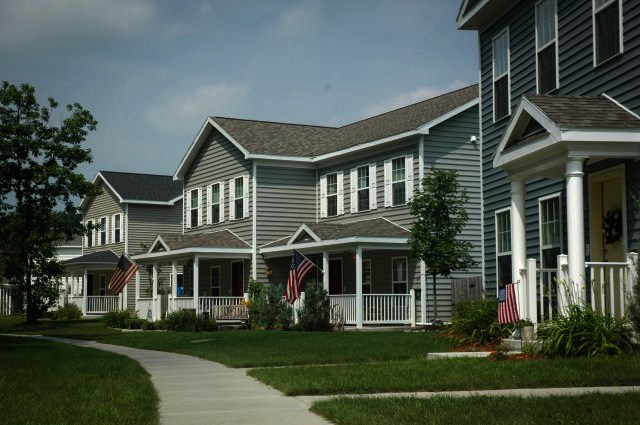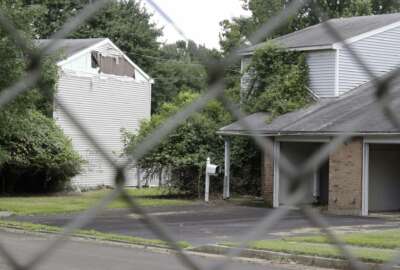
Army IG finds major oversight weaknesses in privatized housing program
An IG review found universal confusion, frustration in oversight and management of the Army's Residential Communities Initiative.
An inspector general’s review of poor housing conditions in privatized Army homes paints a picture of widespread confusion about roles and responsibilities, poor inspection practices and fundamental oversight weaknesses as factors that led to substandard living conditions in family housing across the service.
Some of the problems were caused by budget cuts over the last several years, but some are baked-in to how the Army has managed the Residential Communities Initiative (RCI) since its inception in the late 1990s, according to the IG report the Army released Thursday.
In surveys and site visits to 49 different bases, each garrison commander auditors spoke to said they’d received inadequate or no training at all on the RCI program. And few of the installation officials responsible for overseeing housing companies’ performance on a day-to-day basis had an adequate working knowledge of Army policies on the program or the Army’s contracts with its housing providers.
 The IG found that’s partly because the policies themselves are confusing and don’t adequately spell out base commanders’ authorities to enforce their contracts with housing providers, but also partly because installation-level officials didn’t even have access to the documents that governed their business agreements with the private companies.
The IG found that’s partly because the policies themselves are confusing and don’t adequately spell out base commanders’ authorities to enforce their contracts with housing providers, but also partly because installation-level officials didn’t even have access to the documents that governed their business agreements with the private companies.
The centralized database that was supposed to contain all of that paperwork was cumbersome, expensive to operate, and had fallen into disuse — so much so, the IG found, that the Army decided to shut it down entirely in 2018.
“During the inspection there was no active and accessible repository during the timeframe of the inspection,” according to the report. “DAIG requested all current RCI working document versions; however a full inventory of RCI agreements was never provided.”
Several reasons to blame for poor conditions
As for why widespread deficiencies like mold and unaddressed repair orders were able to proliferate without the Army noticing, budget cuts were partly to blame, the IG found.
In 2013, the Army responded to the Budget Control Act by prioritizing its funds toward operating forces. A decision memo published that year moved many of the RCI program’s oversight functions to higher headquarters and eliminated housing staff positions at local garrisons. But it also specifically forbade local installation managers from doing health and safety inspections in the housing units on their bases.
In surveys and interviews, large majorities of garrison commanders and base housing and public works directors told the IG their installations had “ineffective” oversight programs.
“In addition to shrinking budget, the inspection teams determined there were three main causes for this,” the IG wrote. “First, [installation housing offices] did not have enough personnel required or authorized to oversee the RCI program properly. Second, nearly all (98%) of commands stated housing personnel lacked proper guidance on how to oversee the RCI program. Finally, all garrisons lacked company system (e.g. Yardi, RealPage) access or personnel adequately trained to access the financial and operational data of the RCI companies’ operations in order to conduct quality assurance of their monthly dashboard reports.”
At 92 percent of Army installations, there were no published quality assurance procedures. And the lack of quality control has taken a toll, according to the IG’s survey of 1,100 privatized housing residents. Sixty-eight percent said they were dissatisfied with their housing situation; 64% said they would move off-base if they could do so without taking a financial hit.
The IG made 20 recommendations in all, including that the Army establish a tenant’s bill of rights, deal with personnel shortfalls, update and clarify its quality assurance processes and strengthen the role of senior commanders in overseeing the housing contracts.
The Army agreed with all 20 of the recommendations. Officials said on Thursday that most of them are already being addressed.
“This IG report – along with results from our recent housing surveys, town hall meetings and other feedback mechanisms – will be used to continue our ongoing efforts to improve the quality of life for our soldiers and their families,” Ryan McCarthy, the acting Army secretary, said in a statement.
Some contract renegotiation recommended
But some of the issues the report identified are far-reaching and can’t be handled through increased oversight alone. The IG suggested that correcting the issues would require renegotiating the decades-long contracts the Army has in place with housing companies.
The report questioned the fundamental structure of those agreements. In each case, they are set up as public-private partnerships in which the Army has a 49% financial interest in a limited liability corporation that manages the local housing stock. A private housing provider holds a 51% stake and serves as the “managing member.”
That setup creates a risk of “self dealing” by the housing companies and leaves the Army with almost no insight into the financial machinations of the partnerships, according to the IG.
Related Stories
The Army is not alone in its challenges with privatized housing. The Air Force and Navy operate similar privatized housing programs, and residents on their bases have reported similar problems such as mold, pests, and lead hazards. In March, the secretaries of all three military departments vowed to lawmakers that they would fix the problems, including by renegotiating their contracts.
“In too many cases, it is clear the private housing companies failed to uphold their end of the bargain, a failure that was enabled by the Army’s insufficient oversight,” Defense Secretary Mark Esper, who was then the Army secretary, said at the time. “We are determined to investigate these problems and to hold our housing contractors and chains of command accountable.”
In a joint statement Thursday, the leaders of the Senate Armed Services Committee said the IG’s findings pointed to issues that Congress had already identified as “unacceptable.”
“What the report found underscores the concerns we’ve identified: a lack of oversight, poor management by the housing partners and other issues that left military families without the quality of service they deserve,” Sens. James Inhofe (R-Okla.) and Jack Reed (D-R.I.) said. “We are pleased to see the recommendations of this report line up with many of the provisions in the Senate-passed National Defense Authorization Act, including creating a Tenant Bill of Rights, clarifying and re-engaging the chain of command, empowering military families to seek recourse without retribution, and addressing transparency and accountability on the part of the housing companies. We will continue to fight to make sure these recommendations are addressed in final defense authorization legislation, and the committee will continue stringent oversight moving forward to make sure these changes are implemented as quickly as possible.”
Copyright © 2025 Federal News Network. All rights reserved. This website is not intended for users located within the European Economic Area.
Jared Serbu is deputy editor of Federal News Network and reports on the Defense Department’s contracting, legislative, workforce and IT issues.
Follow @jserbuWFED





